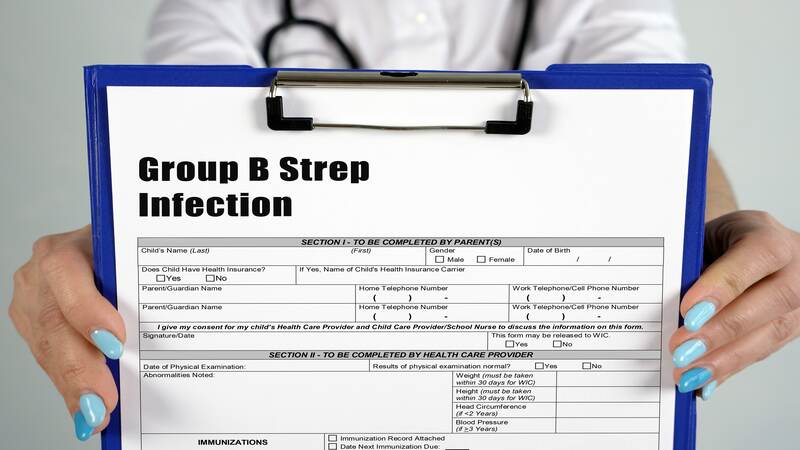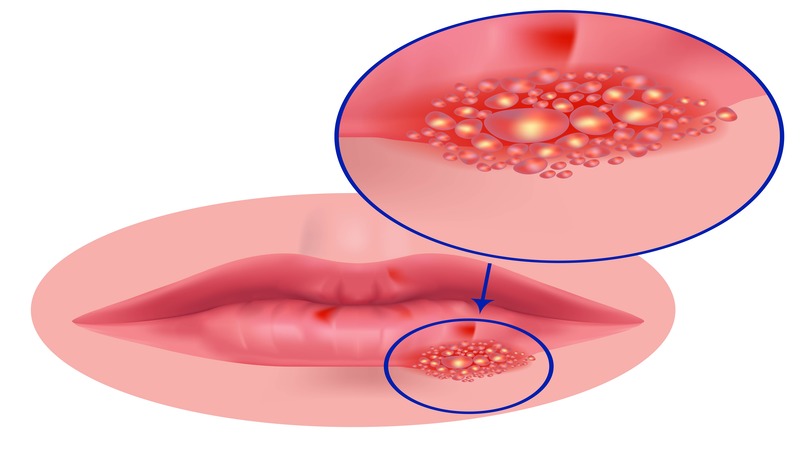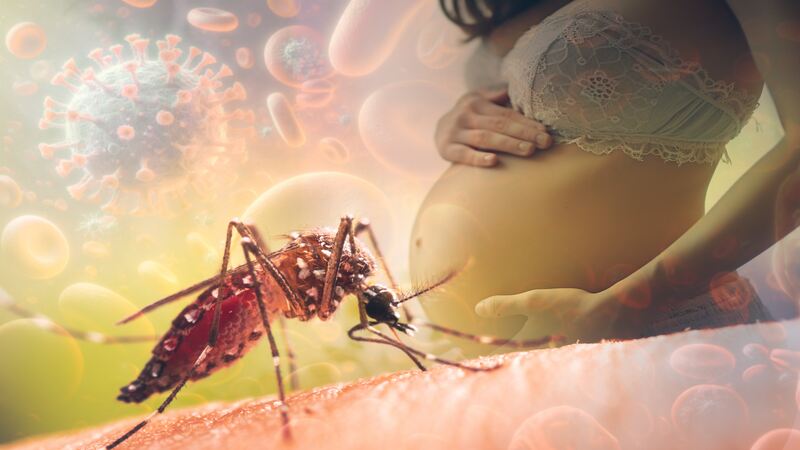 Every woman dreams of becoming a mother. Once her dreamy journey begins, she starts taking extra care of herself. She becomes extra cautious about her health to ensure her little one is safe and healthy inside her. However, there might be certain bumps in the road ahead in the form of infections. Women are prone to infections during pregnancy.
Every woman dreams of becoming a mother. Once her dreamy journey begins, she starts taking extra care of herself. She becomes extra cautious about her health to ensure her little one is safe and healthy inside her. However, there might be certain bumps in the road ahead in the form of infections. Women are prone to infections during pregnancy.
Infections during pregnancy are quite common, as a woman becomes more susceptible to them owing to her weak immune system. These infections range from the flu to vaginal infections. In pregnancy, even a mild infection can lead to serious illness. Some infections might even pose a threat to the unborn baby. Read on more to find out about the common infections.
What Are Infections?
Infections happen due to the invasion and growth of germs in the body. The common microorganisms leading to infections are bacteria, viruses, fungi, and parasites, in simple terms known as germs or bugs [1]. Whenever these germs invade the human body, they grow and multiply, causing an illness or a disease. The immune system in our body helps fight off these pathogens [2]. Treatment includes the use of antibiotics, antivirals, antifungals, etc.
Chickenpox In Pregnancy

Chickenpox is a viral disease caused by the Varicella zoster virus. If a pregnant woman contracts this virus during her pregnancy, then it might lead to unpleasant complications. Due to a weakened immune system during pregnancy, the chances of getting chickenpox are high. The common symptoms include fever and itchy rashes.
Complications of chickenpox in a pregnant woman include:
- Varicella Pneumonia, which can be quite serious, most common in the third trimester.
- Meningitis
- Hepatitis
The risks of chickenpox to the fetus are:
- Fetal varicella syndrome- If a pregnant woman contracts the virus before 28 weeks of pregnancy, then there is a risk of this syndrome causing various deformities [3]
- Risk of getting chickenpox soon after delivery [4].
CMV In Pregnancy
Cytomegalovirus (CMV) is a virus that most often does not cause many symptoms but can be harmful to the baby if contracted during pregnancy. It usually spreads through body fluids. Common symptoms are fever, body aches, fatigue, sore throat, and skin rashes.
There is a risk of the development of congenital CMV that can lead to rashes, jaundice, microcephaly, low birth weight, and vision and hearing issues in the baby [5]. Good hygiene practices, like frequent hand washing during pregnancy, can help reduce the risk of CMV infection.
Yeast Infections And Candida

Yeast infections, most commonly caused by the candida fungus, are quite common in pregnancy. Hormonal imbalances in pregnancy, like increased estrogen, disrupt the balance of normal bacteria and yeast in the body, leading to yeast overgrowth in the vagina [6].
Common symptoms of candidiasis include itching, redness in and around the vagina, and thick white vaginal discharge. It is quite treatable with topical antifungal creams and is usually not harmful to the baby. In rare cases, if the infection is present at the time of delivery, it can lead to the development of oral thrush in babies (a fungal infection in the mouth) [7]. Good hygiene practices during pregnancy can help prevent a yeast infection.
Chest Infections
A weakened immune system makes pregnant women susceptible to infections of the chest, like pneumonia and bronchitis. It mostly results in complications from the common cold and flu. Common symptoms include fever, breathing difficulties, cough, and chest pain. The most common bacteria creating a nuisance in the lungs during pregnancy are Streptococcus, Haemophilus, and Mycoplasma [8].
Common viral illnesses of the chest are Influenza, Varicella Pneumonia, etc.
Complications for the unborn baby include:
- Low birth weight
- Preterm delivery
- Respiratory distress
- Miscarriage
Group B Streptococcus In Pregnancy

Group B Streptococcus is a type of bacteria normally found in the urinary tract, reproductive tract, and digestive tract. It generally doesn’t create any issues but can affect the baby during labor and delivery. Pneumonia, meningitis, and sepsis are the most common infections in babies due to GBS [9]. This is the reason why screening for GBS during the third trimester is recommended.
Infections Transmitted By Animals
Close contact with animals during pregnancy can lead to certain infections that can prove to be fatal for both the mother and the baby. Some of the known infections are:
- Toxoplasmosis: This infection mainly spreads through cat feces. The cause agent is a parasite. It can cause severe complications for the fetus, like eye damage and neurological problems [10]. This infection can even spread through close contact with infected lambs or sheep.
- Listeriosis: This infection can also happen through close animal contact and can result in fatal complications like preterm birth, miscarriage, meningitis, and septicemia.
Hepatitis B

Hepatitis B is a serious liver disease that is highly infectious and spreads through contact with blood and other body fluids [11]. Common symptoms during pregnancy include nausea, vomiting, abdominal pain, fatigue, appetite loss, and jaundice. Chronic cases can cause permanent liver damage or even death. There is a 90% probability of passing the infection to the baby if it does not receive treatment at the time of birth [12].
The risks to the baby include:
- Preterm birth
- Low birth weight
- Developmental delays
- Liver issues
Antivirals during pregnancy and immediately after the baby is born help reduce the mother’s viral load and protect the newborn against the infection [13].
Hepatitis C
The hepatitis C virus (HCV) can cause a liver disease called Hepatitis C. It is quite infectious and generally spreads through blood. This virus has the potential to cause irreversible liver damage or even liver cancer. Usually, Hepatitis C does not have much effect on pregnancy.
Although in rare or complicated cases, it can lead to complications such as:
- Preterm birth
- Low birth weight
- Preeclampsia
- Blood loss
Most of the time, viral transmission to the fetus does not occur. Rarely, the fetus can acquire the infection during pregnancy or at the time of labor through direct contact with blood [14].
Herpes in Pregnancy

Herpes simplex virus is the causal organism for oral and genital herpes infection. It affects almost 2–3% of pregnant women [15]. There are two different herpes viruses:
- HSV-1: Known to cause cold sores around the mouth.
- HSV-2: Causes sores around the genitals.
The symptoms of herpes are an itching or burning sensation around the area affected, painful sores, fever, body aches, and swollen lymph nodes. It is estimated that if a woman has the herpes virus, then the chances of flare-up during pregnancy are around 75% [16]. If the pregnant woman gets herpes for the first time during pregnancy, then the risks to the fetus are higher. Neonatal herpes can lead to brain damage, vision issues, and even death. The complications of herpes are higher during the third trimester or near delivery [17].
HIV in Pregnancy
Human Immunodeficiency Virus (HIV) is a serious virus that causes AIDS. This virus attacks and weakens the immune system, causing life-threatening infections and various cancers [18]. Getting pregnant and being HIV positive has the potential to transmit the virus from the mother to the fetus. This transmission can happen during labor and delivery or later through breastfeeding.
This is called perinatal or vertical transmission [19]. A multi-care approach helps in the effective management of HIV during pregnancy and delivery. Lack of preventive measures during delivery increases the likelihood of transmission to the baby by about 15–30% [20]. Many doctors advise getting a cesarean section before the rupture of membranes to reduce the risk of perinatal transmission. Breastfeeding must be avoided later and instead, the use of alternatives like formula milk must be encouraged.
Slapped Cheek Syndrome in Pregnancy
Slapped cheek syndrome, also known as Fifth disease, is a viral illness predominantly seen in children. Though it is rare in adults, it can be serious. It is caused by Parvovirus B19 and spreads through droplet spread. Typical symptoms include high fever, runny nose, headache, and red rashes on one or both cheeks. Infection during pregnancy can be dangerous, as there is a small risk of having a miscarriage. Infection during the first few months of pregnancy can lead to the development of severe anemia in the baby [21].
Flu

Pregnant women are susceptible to infections like the flu (influenza) due to a weak immune system. It is highly contagious and very easy to catch. This can be concerning during pregnancy due to several complications that come along with it. Pregnant women who are not vaccinated against flu are at a greater risk of catching this infection as compared to pregnant women who were vaccinated before [22]. Flu can lead to certain complications in the developing baby, such as low birth weight, preterm labor, and miscarriage. There is a risk of developing dehydration and pneumonia in the mother as well.
Ear Infections
Ear infections are again common during pregnancy as a result of changes in the immune system. Also, pregnancy makes a woman more prone to allergies. Common symptoms include ear pain, mild hearing loss, vertigo, heaviness in the ears, and discharge from the ears. Ear infections during pregnancy are quite treatable and do not usually cause complications. Untreated cases can cause hearing and balance issues.
Vaginal Yeast Infections
Vaginal yeast infections are quite common during pregnancy due to hormonal changes. Increased estrogen levels in pregnancy result in the overgrowth of fungus in the vagina. The most common fungus to grow is Candida albicans [23].
Other factors resulting in yeast infections in pregnant women are:
- Weak immune system during pregnancy.
- Uncontrolled blood sugar levels
- Recent history of taking antibiotics or steroids
- Frequent vaginal douching
Symptoms include itching, soreness, and redness in the vagina, along with the presence of whitish vaginal discharge.
Uterine Infections

The most common intrauterine infection occurring during or before labor is chorioamnionitis [24]. It is a bacterial infection of the membranes around the fetus and the amniotic fluid. This happens due to the ascending of bacteria from the vagina into the uterus. Common bacteria causing this infection are E. Coli, Group B Streptococcus, and other anaerobic bacteria [25]. Common symptoms include fever, abdominal tenderness, and foul-smelling amniotic fluid. It is quite common in cases of preterm labor.
It is considered a medical emergency and can lead to serious complications like:
- Endometritis is an infection of the uterine lining.
- Cesarean section.
- Blood loss during delivery
- Bacteremia
- Meningitis in babies.
- Pneumonia in babies
Chorioamnionitis requires treatment with antibiotics to reduce the risk of preterm labor and sepsis.
Listeria
Listeria monocytogenes is a bacteria found in soil and water. So, listeria infection most often happens via consuming contaminated food and water. Uncooked food and unpasteurized milk are common culprits. Infection during pregnancy can be problematic for both the mother and the baby. Symptoms include mild fever, headache, body aches, and vomiting. Infection during pregnancy most often happens in the third trimester. Risks of the infection to the baby include:
- Premature delivery
- Infection in the newborn
- Stillbirth
- Miscarriage, if it happens in the first trimester [26].
Antibiotics are used to treat the infection.
Bacterial Vaginosis

Bacterial vaginosis is an infection of the vagina caused by certain bacteria. Normally, the vagina consists of good bacteria called lactobacilli and bad bacteria called anaerobes. Usually, there is a good balance between the two. Any disruption in this balance causes the infection. It is common in pregnancy and is quite treatable. Symptoms include foul-smelling vaginal discharge, which is grayish or white. Untreated cases during pregnancy can lead to undue complications like preterm delivery and miscarriage [27]. Also, there is a high risk of developing sexually transmitted infections like Chlamydia, herpes simplex, and HIV. The risk of pelvic inflammatory disease is also increased.
Gonorrhea
Gonorrhea is a sexually transmitted infection caused by the bacteria Neisseria gonorrhoeae. Symptoms of this infection are vaginal discharge, pain, and burning during urination and intercourse. During delivery, it can be passed on to the baby, causing serious complications. The risks of gonorrhea to the baby include:
- Preterm labor [28].
- Premature rupture of membranes.
- Miscarriage
- Untreated cases can cause blindness in babies.
It can even lead to pelvic inflammatory disease and sepsis in pregnant women. Gonorrhea can be managed well using antibiotics.
Chlamydia

Chlamydia is also a sexually transmitted infection that can be passed on from the mother to the baby during delivery. The majority of the women remain asymptomatic and a few of them have symptoms like abdominal pain, burning during urination, and vaginal discharge. It is also one of the common causes of Pelvic Inflammatory Disease. Antibiotics are given to cure the infection. The complications during pregnancy include:
- Preterm birth [29].
- Premature rupture of membranes
- Miscarriage
- Conjunctivitis
- Pneumonia
Human Papillomavirus (HPV)
Human papillomavirus is also a type of sexually transmitted infection. This virus has a lot of strains that result in warts and cancer of certain organs like the cervix, vagina, etc. [30]. The most common symptom is the presence of warts on the affected area. Generally, it does not cause any issues in pregnancy, but in rare instances, it can lead to a few complications. If a large wart is present near the vagina, then it can cause bleeding during delivery or might make normal delivery a bit tricky. Sometimes, the virus can be passed on to the fetus in the womb.
Rubella

Rubella, also known as German Measles, is a contagious viral illness that can prove fatal to an unborn baby during pregnancy. Some complications of rubella are:
- Miscarriage
- Birth defects
- Stillbirth
Common symptoms include rashes, fever, swollen glands, headaches, etc. Catching the rubella virus during pregnancy can lead to congenital rubella syndrome in the baby, which results in mental disabilities, cataracts, deafness, and heart issues [31]. Exposure to the virus early in the pregnancy results in miscarriage. Making sure that you are vaccinated against this disease makes you immune to the rubella virus during pregnancy.
Toxoplasmosis
Toxoplasmosis is a parasitic infection caused by Toxoplasma gondii. It usually spreads through the consumption of contaminated meat, and vegetables or contact with animal feces. A pregnant woman can pass on infection to her unborn baby too, as the parasite can cross the placenta. The following complications can occur in the fetus:
- Developmental delays
- Seizures
- Deafness
- Eye infection
- Liver and spleen damage
Maintaining proper hygiene along with the consumption of washed, cooked fruits, vegetables, and meat can help in avoiding this dangerous infection.
Syphilis

Syphilis is a bacterial sexually transmitted infection that can lead to various health complications. The infection can pass on from an infected mother to her baby in the womb. It can lead to complications like miscarriage and premature birth. General symptoms include fever, sores, rashes, and body aches. In the later stages, it can lead to blindness, deafness, paralysis, and even death. Infected babies are born with congenital syphilis [32]. The resulting problems are:
- Blindness
- Deafness
- Jaundice
- Severe anemia
- Meningitis
- Skin rashes
Early treatment is very important to avoid the deadly complications of syphilis.
Lyme Disease
Lyme disease is a bacterial infection that results due to the bite of an infected tick. Symptoms include fever, chills, and headaches, along with typical rashes resembling a bull’s eye. If left untreated, it can result in joint pain, nerve issues, and even paralysis. According to many studies, the disease does not pass from the infected mother to the baby. If diagnosed during pregnancy, then antibiotics must be started early to prevent any undue complications.
Trichomoniasis
Trichomoniasis is a sexually transmitted infection that results due to a parasite called Trichomonas vaginalis. Common symptoms include white or greenish vaginal discharge, fishy odor, itching, and pain during intercourse. Infection during pregnancy can result in the following complications:
- Preterm labor
- Low birth weight [33].
Treatment with antibiotics must be initiated early to prevent the above complications.
Zika

Zika is a viral illness that results due to the bite of an infected mosquito. The symptoms are mild, including fever, body aches, and rashes. A pregnant woman can pass on the infection to her, which can prove to be fatal [34].
Zika can result in the following complications in the baby:
- Microcephaly, where the baby is born with a small head
- Vision issues
- Seizures
- Hearing loss
Pregnant women should avoid going to areas that are usually affected by Zika outbreaks.
Norovirus
Norovirus is a contagious virus that results in severe gastroenteritis, leading to diarrhea. It is also known as stomach flu and the common symptoms of this disease are diarrhea, nausea, vomiting, stomach aches, and a low-grade fever. During pregnancy, this infection can be concerning due to the presence of severe diarrhea and vomiting. This can lead to severe dehydration, which can be very dangerous in pregnancy. The best way to safeguard the well-being of both the mother and the baby is by taking plenty of fluids.
Coli

Coli (Escherichia coli) is a notorious bacterium that causes various infections that can be concerning during pregnancy. It causes mainly urinary tract infections in pregnant women due to hormonal changes [35]. It is very well managed using antibiotics, but untreated cases can result in complications like preterm labor and sepsis. Common symptoms include an increase in the frequency of urination, burning, and pain while urinating. Some stains of E. coli can cause gastroenteritis during pregnancy and can cause severe diarrhea and vomiting. This can be dangerous during pregnancy as it can lead to dehydration, which can be fatal for both the mother and the baby.
So, if you are expecting a baby and you are feeling sick or tired a lot more lately, then it is better to get yourself evaluated. Infections during pregnancy are quite common and may lead to complications for both the mother and the baby. The sooner the infection is diagnosed, the lesser the risks will be.
FAQ’s
1. Which Infection Is Common In Pregnancy?
Due to changes in a woman’s immune system during pregnancy, she remains susceptible to several infections. The common infections during pregnancy are flu, group B Streptococcus, vaginal yeast infections, and bacterial vaginosis. Urinary tract infections are quite common too.
2. Can Infections Harm an Unborn Baby?
Infections during pregnancy can harm the unborn baby. Many infections have the potential to cause miscarriage, preterm birth, and few birth defects. Some serious infections like rubella, toxoplasmosis, and cytomegalovirus can lead to neurological issues, hearing loss, and heart problems in the baby.
3. How Can I Avoid Infections During Pregnancy?
Following good hygiene practices during pregnancy is important to keep infections at bay. So, important steps are frequent hand washing, consuming properly washed and cooked food, avoiding contact with sick individuals, and most importantly, getting important vaccinations that are recommended before and during pregnancy.
4. How Should A Husband Treat His Pregnant Wife?
A husband can be a big support for his pregnant wife. Being there for his pregnant wife physically and emotionally can be a big boon during pregnancy. He should help with the Household chores and should make sure that his wife attends all her prenatal appointments. Providing her with a healthy diet is also crucial.
References
- Cleveland Clinic, Infectious Diseases – https://my.clevelandclinic.org/health/diseases/17724-infectious-diseases
- Institute for Quality and Efficiency in Health Care (IQWiG); 2006-. In brief: How does the immune system work? [Updated 2023 Jun 6] – https://www.ncbi.nlm.nih.gov/books/NBK279364/
- Boston’s Children’s Hospital, Congenital Varicella – https://www.childrenshospital.org/conditions/congenital-varicella
- American Academy of Pediatrics. 2009. Varicella-zoster infections. In: Pickering LK, Baker CJ, Kimberlin DW, Long SS, eds. Red Book: 2009. Report of the Committee on Infectious Diseases. 28th ed. Elk Grove Village, IL: American Academy of Pediatrics;714-727 – https://www.ncbi.nlm.nih.gov/books/NBK583011/
- Salomè S, Corrado FR, Mazzarelli LL, Maruotti GM, Capasso L, Blazquez-Gamero D, Raimondi F. Congenital cytomegalovirus infection: the state of the art and future perspectives. Front Pediatr. 2023 Nov 16;11:1276912 – https://www.ncbi.nlm.nih.gov/pmc/articles/PMC10687293/
- Gershenson DM, et al. Genital tract infections: Vulva, vagina, cervix, toxic shock syndrome, endometritis, and salpingitis. In: Comprehensive Gynecology. 8th ed. Elsevier; 2022 – https://www.mayoclinic.org/diseases-conditions/vaginitis/expert-answers/yeast-infection-during-pregnancy/
- Medically reviewed by Mia Armstrong, MD — Written by Anna Giorgi and Alina Sharon – https://www.healthline.com/health/thrush#symptoms
- Goodnight WH, Soper DE. Pneumonia in pregnancy. Crit Care Med. 2005 Oct;33(10 Suppl):S390-7 – https://pubmed.ncbi.nlm.nih.gov/16215363/
- Karen M Puopolo, MD, PhDCarol J Baker, MD – https://www.uptodate.com/contents/group-b-streptococcus-and-pregnancy-beyond-the-basics/print
- Boston’s Children Hospital, Breadcrumb Home Conditions Congenital Toxoplasmosis –
https://www.childrenshospital.org/conditions/congenital-toxoplasmosis - World Health Organisation, Hepatitis B – https://www.who.int/news-room/fact-sheets/detail/hepatitis-b
- Pregnancy and Hepatitis B, Hepatitis B Foundation – https://www.hepb.org/treatment-and-management/pregnancy-and-hbv/
- Lee YS, Bang SM, Lee YS. Benefits and Risks of Antiviral Treatment during Pregnancy in Patients with Chronic Hepatitis B. J Clin Med. 2021 May 26;10(11) – https://www.ncbi.nlm.nih.gov/pmc/articles/PMC8198811/
- Hepatitis C in pregnancy: screening, treatment, and management Hughes, Brenna L. et al. American Journal of Obstetrics & Gynecology, Volume 217, Issue 5, B2 – B12 – https://www.ajog.org/article/S0002-9378(17)30930-4/fulltext
- Wafaa Ali Belail Hammad, Justin C. Konje, Herpes simplex virus infection in pregnancy – An update,
European Journal of Obstetrics & Gynecology and Reproductive Biology, Volume 259, 2021, Pages 38-45 – https://www.sciencedirect.com/science/article/abs/pii/S0301211521000695 - Dan Brennan, MD, i award-winning, board-certified pediatrician – https://www.medicinenet.com/can_pregnancy_cause_herpes_to_flare_up/article.htm
- Straface G, Selmin A, Zanardo V, De Santis M, Ercoli A, Scambia G. Herpes simplex virus infection in pregnancy. Infect Dis Obstet Gynecol. 2012;2012:385697. – https://www.ncbi.nlm.nih.gov/pmc/articles/PMC3332182/
- Mayo Clinic, HIV/Aids – https://www.mayoclinic.org/diseases-conditions/hiv-aids/symptoms-causes/syc-20373524
- Usama Irshad; Heba Mahdy; Tiffany Tonismae, King Edward Medical University / Mayo Hospital Lahore
Johns Hopkins All Children’s Hospital – https://www.ncbi.nlm.nih.gov/books/NBK558972/ - Teasdale CA, Marais BJ, Abrams EJ. HIV: prevention of mother-to-child transmission. BMJ Clin Evid. 2011 Jan 17;2011:0909 – https://www.ncbi.nlm.nih.gov/pmc/articles/PMC3217724/
- Cleveland Clinic, Parvovirus Infection – https://my.clevelandclinic.org/health/diseases/16633-parvovirus-infection
- NHS, The flu jab in pregnancy – https://www.nhs.uk/pregnancy/keeping-well/flu-jab/
- Messina, A.; Mariani, A.; Brandolisio, R.; Tavella, E.; Germano, C.; Lipari, G.; Leo, L.; Masturzo, B.; Manzoni, P. Candidiasis in Pregnancy: Relevant Aspects of the Pathology for the Mother and the Fetus and Therapeutic Strategies. Trop. Med. Infect. Dis. 2024, 9, 114 – https://www.mdpi.com/2414-6366/9/5/114
- Clinical chorioamnionitis at term: definition, pathogenesis, microbiology, diagnosis, and treatment Jung, Eunjung et al. American Journal of Obstetrics & Gynecology, Volume 230, Issue 3, S807 – S840 – https://www.ajog.org/article/S0002-9378(23)00080-7/fulltext
- Lukanović D, Batkoska M, Kavšek G, Druškovič M. Clinical chorioamnionitis: where do we stand now? Front Med (Lausanne). 2023 May 24;10:1191254. – https://www.ncbi.nlm.nih.gov/pmc/articles/PMC10244675/
- U.S Food And Drugs, Listeria (Food Safety for Moms-to-Be) – https://www.fda.gov/food/health-educators/listeria-food-safety-moms-be
- NHS, Bacterial vaginosis – https://www.nhs.uk/conditions/bacterial-vaginosis/
- Medically Reviewed by Traci C. Johnson, MD on February 11, 2024 – https://www.webmd.com/baby/pregnancy-sexually-transmitted-diseases
- Chlamydia and pregnancy – https://www.pregnancybirthbaby.org.au/chlamydia-and-pregnancy
- Mayo Clinic, Genital warts – https://www.mayoclinic.org/diseases-conditions/genital-warts/symptoms-causes/syc-20355234
- Mother To Baby | Fact Sheets [Internet]. Brentwood (TN): Organization of Teratology Information Specialists (OTIS); 1994-. Measles, Mumps, and Rubella. 2022 Nov – https://www.ncbi.nlm.nih.gov/books/NBK582537/
- Mother To Baby | Fact Sheets . Brentwood (TN): Organization of Teratology Information Specialists (OTIS); 1994-. Measles, Mumps, and Rubella. 2022 Nov – https://www.cdc.gov/syphilis/about/about-congenital-syphilis.html
- American Pregnancy Association, Trichomoniasis During Pregnancy – https://americanpregnancy.org/healthy-pregnancy/pregnancy-complications/trichomoniasis-during-pregnancy/
- CDC, Zika virus – https://www.cdc.gov/zika/about/index.html
- Medically Reviewed by Nivin Todd, MD – https://www.webmd.com/women/pregnancy-urinary-tract-infection
